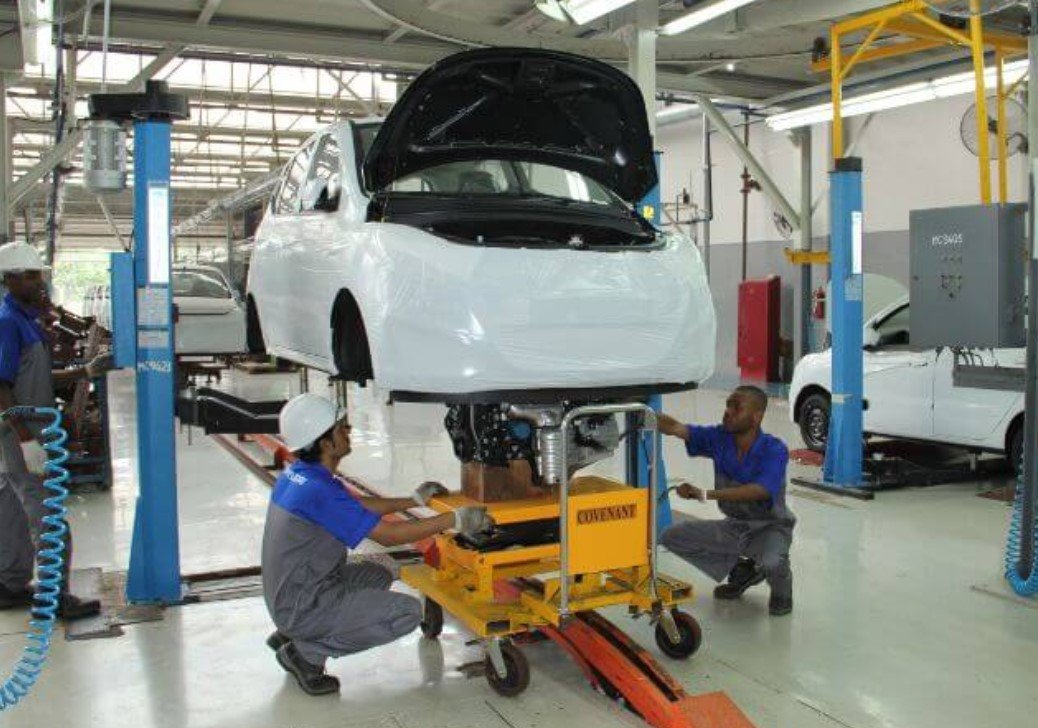NADDC is set to revolutionize Nigeria’s automotive landscape with the establishment of 21 new training centers nationwide. This bold move aims to equip technicians with the latest skills in vehicle conversion and maintenance.
State-of-the-Art Facilities Ready for Action
Joseph Osanipin, the Director General of NADDC, announced the launch at the NAJA’s annual workshop in Lagos. These centers aren’t just buildings; they’re hubs equipped with cutting-edge tools from leading original equipment manufacturers. Mr. Ikechukwu Okoha, the Assistant Director, highlighted that many centers are already up and running, ready to train the next generation of automotive experts.
Osanipin emphasized the importance of these facilities in modernizing Nigeria’s vehicle fleet. “We’re not just training technicians; we’re building a future where our cars are more efficient and environmentally friendly,” he said.

Transitioning to Cleaner Energy
One of the standout features of these training centers is their focus on converting petrol-powered vehicles to run on compressed natural gas (CNG). This shift is part of President Bola Tinubu’s initiative to lower energy costs and mitigate the effects of fuel subsidy cuts.
CNG is seen as a game-changer for Nigeria. It’s cleaner and more cost-effective, which is exactly what the country needs right now. “By embracing CNG, we’re taking a significant step towards a sustainable future,” Osanipin noted.
Government Support Paves the Way
The government’s backing is crucial for this initiative. The Presidential Initiative on Compressed Natural Gas aligns perfectly with global trends towards greener energy solutions. NADDC is at the forefront, ensuring that Nigeria keeps pace with international standards in the automotive industry.
Dr. Benedict John Okoh, CEO of Universal Automotive Training Academy, shared his optimism. “CNG isn’t just an alternative fuel; it’s a solution to many of our current challenges,” he explained. The support from both the government and private sectors is vital for the success of these training centers.
Overcoming Challenges with Innovation
Of course, no major initiative comes without its hurdles. Infrastructure development for CNG is still in its early stages, and there’s a need for more investment. However, the potential benefits far outweigh these challenges.
Okoh believes that with the right incentives, more vehicle owners will make the switch to CNG. “Governments and the private sector should work hand in hand to build the necessary infrastructure and encourage adoption,” he urged.
Key Benefits of CNG Conversion:
- Reduced Emissions: Cleaner-burning fuel lowers the environmental impact.
- Lower Operating Costs: CNG is more affordable than petrol, saving money in the long run.
- Energy Independence: Reduces reliance on imported fossil fuels.
Economic Impact of Affordable Transportation
The transportation sector is the lifeblood of any economy. When moving goods and people becomes too expensive, it has a ripple effect on the cost of everything else. By making transportation more affordable through CNG, Nigeria can see significant economic benefits.
Osanipin pointed out that efficient transportation keeps prices stable and supports various industries. “Affordable movement means lower costs for businesses and consumers alike,” he stated.
Training the Next Generation of Technicians
The success of this initiative hinges on the quality of training provided at these centers. NADDC is committed to delivering top-notch education and hands-on experience to its trainees. This ensures that technicians are well-prepared to handle the latest automotive technologies.
The training programs cover everything from basic vehicle maintenance to advanced CNG conversion techniques. By investing in human capital, NADDC is not just building centers; they’re nurturing a skilled workforce ready to drive Nigeria’s automotive industry forward.
Collaboration with Industry Leaders
Partnering with original equipment manufacturers has been a smart move. These collaborations bring in expertise and resources that elevate the training programs. It’s a win-win situation where both NADDC and the OEMs benefit from the shared knowledge and innovation.
John Quincy, CTO of Universal Automotive Training Academy, highlighted the importance of these partnerships. “Working with industry leaders ensures that our training is relevant and up-to-date,” he said. This collaboration is key to maintaining high standards and fostering continuous improvement.
Looking Ahead: A Greener Future
NADDC’s initiative is a significant step towards a more sustainable and economically stable Nigeria. With 21 new training centers, the country is well on its way to reducing emissions, lowering energy costs, and fostering a skilled workforce.
As the world shifts towards cleaner energy, Nigeria is not just following the trend but setting its own path. The establishment of these training centers marks the beginning of a new era in the Nigerian automotive industry—one that is more efficient, eco-friendly, and economically viable.
















